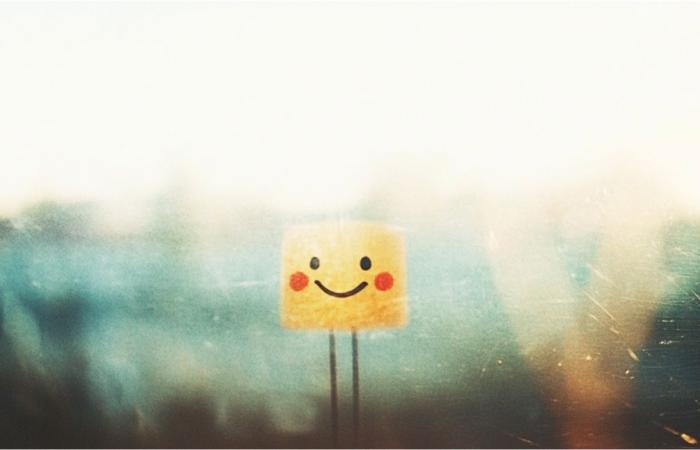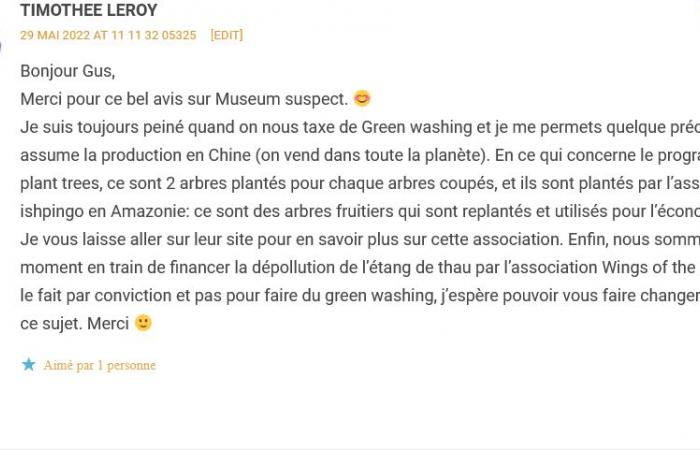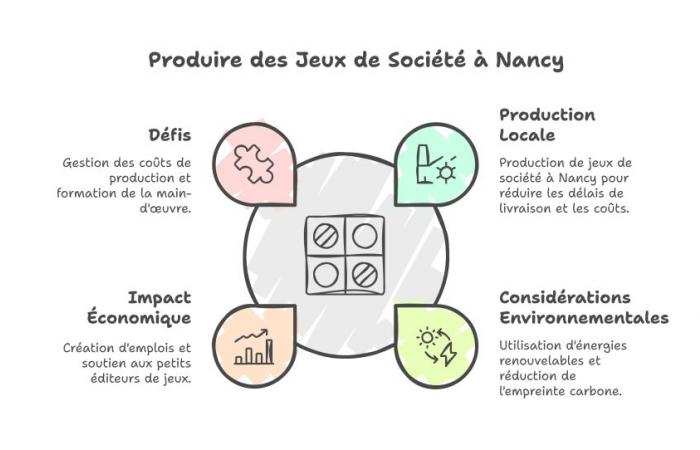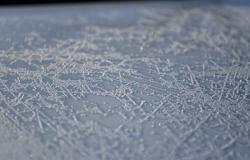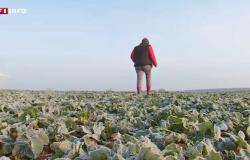???? The board game revolution begins in Nancy! Local production, jobs, ecology: the project that will change everything in 2025.
Article written by Amélie. Passionate about board games. Started playing board games around age 1 and hasn't stopped since. Love board games, cooperative, narrative and others that also end in “tif”. Loves sharing his passion and helping others discover the best and avoid flops.
Amélie
Nancy becomes the new capital of French board games
In short:
- Game In France chooses Nancy to set up a board game production factory, opening planned for the end of 2025
- The project focuses on eco-responsibility with local production and renewable energies
- Around ten jobs created initially, with potential for growth and support for small publishers
To listen to this article:
There is news that changes the game, and this could well redistribute all the cards in the French board game.
To start the new year off right, we have some great news to tell you! In December 2024, a new page turns for the board game industry in France. The sector, grouped under the name Game In France, has decided to set up a manufacturing plant in Nancy, marking a significant turning point for the board games sector.
This decision is not limited to a simple transfer of production; it encompasses environmental and economic considerations crucial to the future of this industry.
L’initiative de Game In France
Game In France, a consortium of French board game publishers, including the company Blue Orange based in Pont-à-Mousson, has decided to centralize production in Nancy. The main objective is to repatriate the manufacturing of games, currently often outsourced to Eastern Europe or Asia, to promote “Made in France” production. This factory, scheduled to open in late 2025, is expected to not only create jobs but also reduce the carbon footprint associated with the production and transportation of games.
Total amount of investment: 5.5 million euros for start-up at the end of the third quarter of 2025. The installation in the Nancy metropolitan area is being finalized and a private fundraising of 1.5 million euros was launched.
By manufacturing locally, Game In France aims to reduce delivery times, reduce transport costs and strengthen product traceability. Great! This results in better inventory management and faster response to market demands. Remember all the worries related to the various maritime crises during and after COVID.
No, you are not dreaming! No more games that travel around the world three times before arriving on our Kallax. This time, we're focusing on local, real, good things! The factory will open its doors at the end of 2025, and we can't wait to see it!
And kudos to Blue Orange which has decided to repatriate its production to Europe. In France. We remember his boss’s reaction following our review of their (excellent) Museum:
“We assume production in China.” So changing your mind is good for the planet.
Environmental aspects
The decision to produce in Nancy is strongly influenced by environmental considerations:
- Reduction of the Carbon Footprint: Importing games from abroad involves significant CO2 emissions due to maritime or air transport. Local production significantly reduces these emissions.
- The factory plans to be a true champion of ecology! Renewable energies, intelligent packaging, zero waste… We are putting all the chances on our side so that our games are as good for the planet as for our evenings!
- Renewable Energy: Nancy, with its position in the Grand Est, offers opportunities for the use of renewable energies, notably solar and wind, to power the factory, which could reduce the energy impact of production .
Economic impact
On an economic level, the establishment of this factory in Nancy brings several advantages:
- We start with around ten jobs, but this is only the beginning of the adventure! Nancy will become a real creative hub. Small publishers will finally be able to breathe a little and have access to top-notch production tools. That's what we call playing collectively!
- Regional revitalization: Nancy, already recognized for its industrial skills, could strengthen its status as a hub of creative industry in France. The economic benefits could stimulate other local sectors, such as tourism or services.
- Support for small businesses: By centralizing production, Game In France can offer logistical and economic support to small independent publishers, allowing better competitiveness on the national and international market.
Challenges and perspectives
However, this transition is not without challenges:
- Well, let's be honest with each other: producing in France costs a little more than on the other side of the world. in countries with low labor costs, which may require price adjustments or subsidies to remain competitive.
- Training and skills: It will be necessary to train the local workforce in the specifics of board game manufacturing, a sector that requires both creativity and technical precision.
- Market and consumption: The success of this project will also depend on the ability of the market to absorb these “Made in France” products at a potentially higher price, while promoting the label for its environmental and ethical aspect.
Conclusion
The entire French industry has its eyes riveted on this great Nancy adventure. Game In France's initiative to centralize the production of board games in Nancy is an ambitious project that highlights the intersection of environmental and economic concerns in the modern industry. If successful, this factory could well become a model for other sectors, demonstrating that local production can be both environmentally and economically viable.
This decision marks a return to basics for an industry that seeks to combine tradition and innovation, while strengthening the foundations of a more sustainable and inclusive economy.

Post-script
This transition should be closely monitored, not only for its transformative potential in the field of board games, but also as a case study for green reindustrialization in France. The next few years will tell us whether Nancy will indeed become the French capital of board games, with tangible benefits for the environment and the local economy.
So yes, the most ecological game is the one that is not published. But making a game in France is already a big, big step forward. We clap with both hands (because yes, well, it's easier than with one hand). I feel that the Blue Orange games will now receive their Dé Vert label.
And the entire Gus&Co editorial team takes advantage of this very, very first article of 2025 to wish you an excellent year! May it be beautiful, may it be playful.
Sources
Join our community:
Join our WhatsApp channel
Since 2007, your loyalty has shaped our gaming blog. To make your reading experience even more enjoyable, we have chosen an ad-free space, however we maintain affiliate relationships with Philibert and Play-in, we receive a small commission when you purchase a game from our site. Our independence thrives on your support, and every contribution, big or small, makes a real difference.
By donating via Tipee, you help us enrich our content and share our passion for board games. Your support allows us to continue this great adventure together. Thank you for your generosity and for being part of our community dedicated to games, in all its forms. Together, let's continue to explore the playful world!
Support Gus&Co on Tipeee
Your reaction to the article?
I like this:
I like loading…

